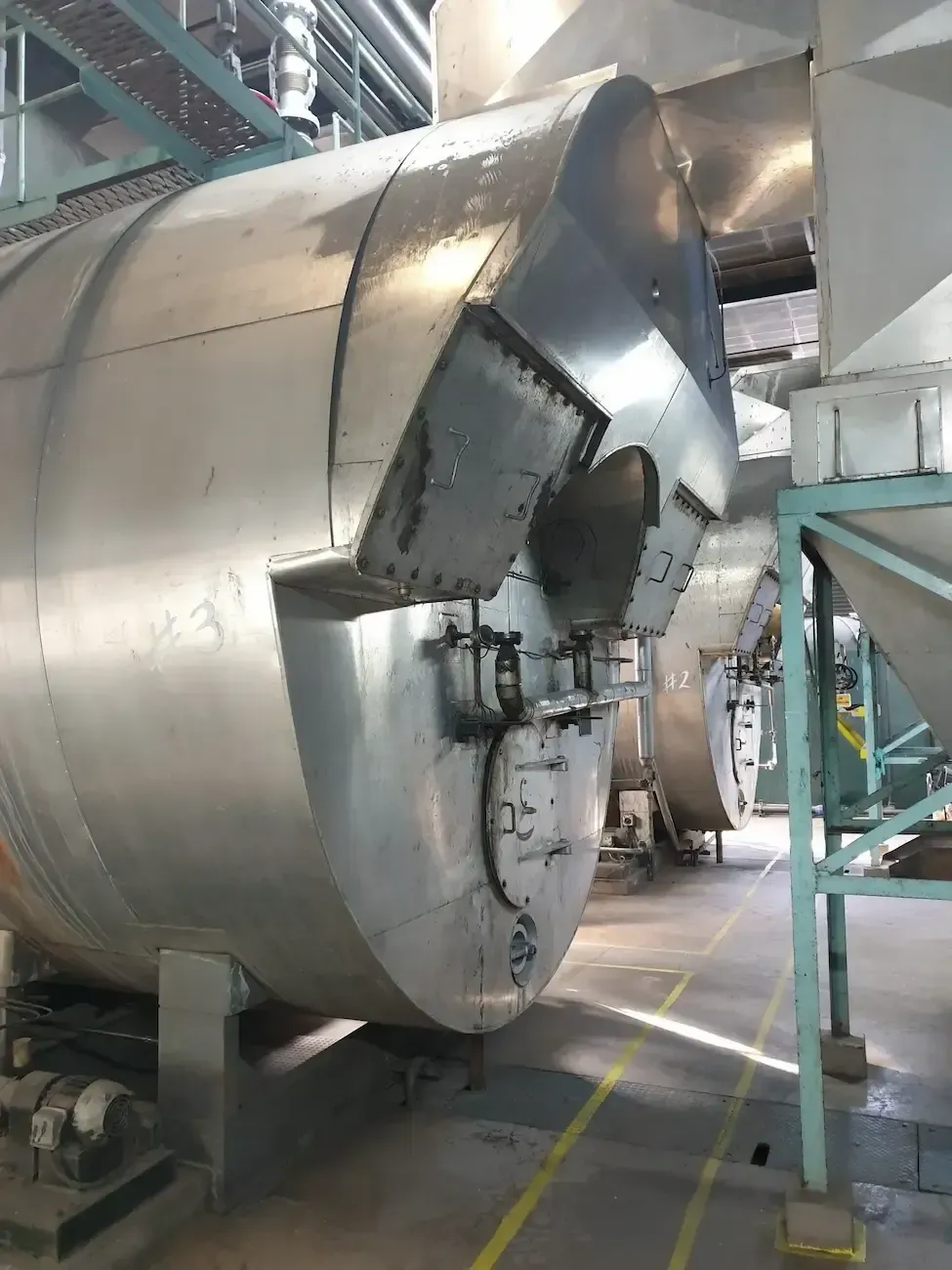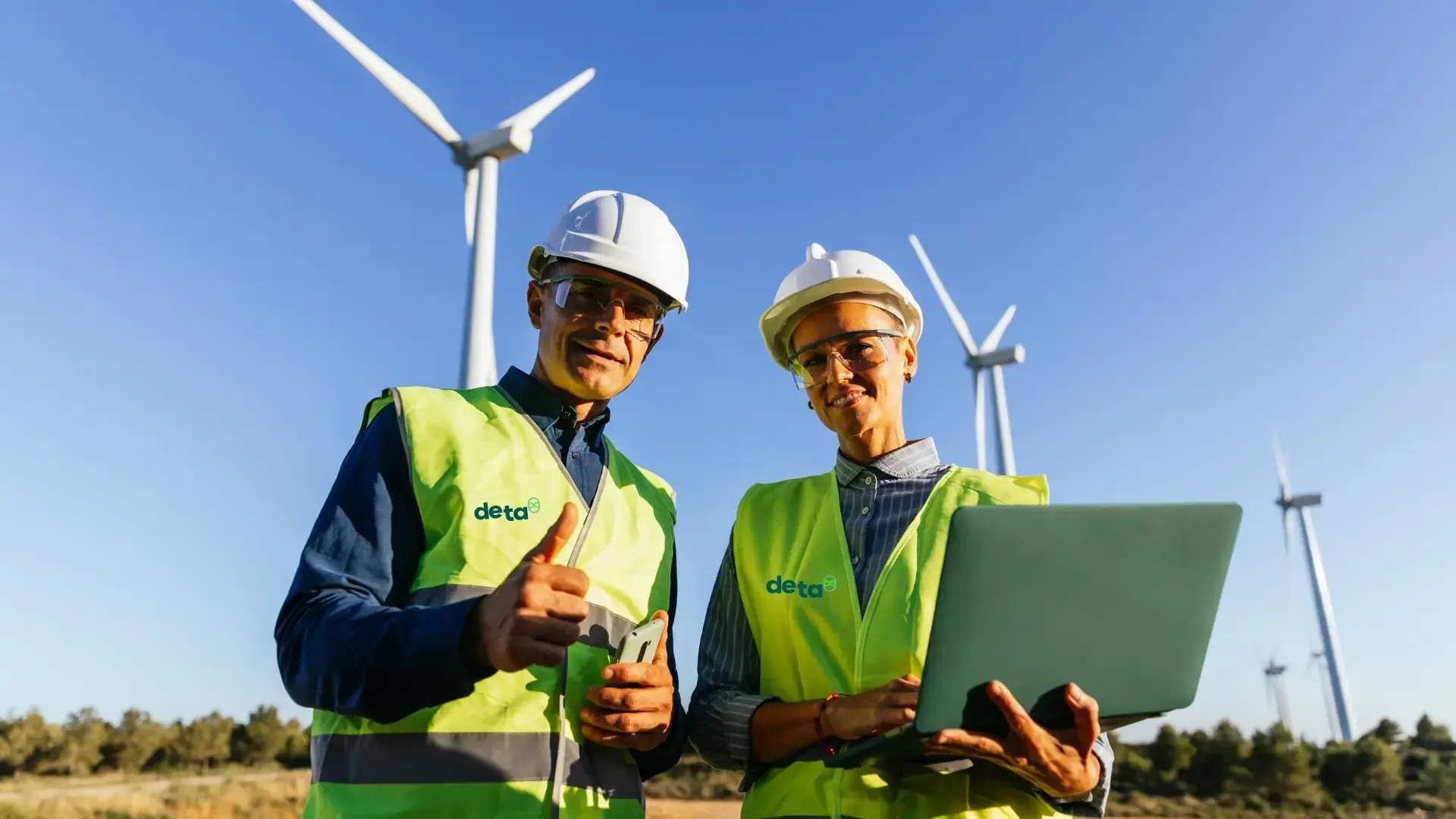Beyond the blueprint: industrial project management for sustainable success
If you’ve ever had to manage a project at work, you will be familiar with the deep sigh of relief once it is finalised. Project management is complex, a demanding role that requires high performance plate spinning to balance the elements of time, money, scope and people to meet the objectives of the project within the agreed parameters. Each of these elements present their own unique set of challenges to navigate before success can be called. However, in today’s environmentally conscious industrial landscape, project managers now have an additional responsibility: sustainability.
Why is sustainability important in industrial project management?
Sustainable project management addresses economic, social, and environmental factors at every stage of the lifecycle of a project. By utilising specialist skills, tools, and techniques, it develops innovative solutions that increase efficiency, cost-effectiveness, and environmental responsibility. Businesses and organisations are transformed by merging traditional project delivery with sustainable outcomes. This approach not only contributes to solving global climate issues but also ensures the long-term success and sustainability of both the projects and the businesses behind them.
Here’s why sustainability is vital for business success:
- With growing awareness of climate change, organisations are under increased pressure to integrate sustainability into their businesses by reducing their carbon footprint and lessening the environmental burden of their operations. Meeting these demands is no longer an expectation, rather it is business critical for long-term viability.
- Stakeholders, ranging from customers to employees and investors, demand greater transparency and responsibility regarding social and environmental outcomes. They want to support projects that align with their values and contribute positively to society. By embedding sustainability into project management, businesses satisfy these expectations, fostering trust and strengthening stakeholder relationships.
- Sustainability also drives significant benefits and business growth. Beyond cutting costs, it encourages research, development and innovation, leading to a stronger reputation and capacity to unlock new opportunities for competitive advantage.

So, what’s stopping businesses being more sustainable?
With reference to the list above, sustainability makes good business sense, right? However, current project management standards, both in New Zealand and internationally, oftentimes fail to adequately address sustainability. Sustainability is often compromised due to a combination of factors:
- Assumed high financial burden
- Perceived high costs of alternative technologies
- Lack of research
- Legislative issues
- Lack of awareness
- Poor project performance due to insufficient team competency
Bridging the gap between sustainability and industrial project management
So, how do you bridge the gap between sustainability and industrial project management? This is where DETA’s industrial project management expertise excels. By offering a comprehensive suite of sustainability services in Australia, Aotearoa New Zealand and the Pacific, DETA tailors its involvement to the business’s needs, whether it’s managing the entire project or handling specific parts. This flexibility allows businesses to focus on their core operations while DETA ensures sustainability remains front and centre throughout the project lifecycle.

A holistic approach to industrial project management
At DETA, industrial project management is more than coordinating tasks and ensuring timelines are met. It’s about looking beyond the immediate blueprint and focusing on creating long-term value.
- Defining the project's scope, deliverables, and objectives
- Undertakingcomprehensive feasibility studies and technology assessments
- Process engineering concept designs and infrastructure integration for a tailored strategic plan
- Managing resources
- Monitoring progress
- Risk management
- Communicating so everyone involved understands the project's goals and objectives, and what their role is.
- Supplying funding support assessments and budget management
- Ensuring stakeholder satisfaction
- Evaluating performance including after the project is complete
A key feature of DETA's project management is integrating energy management in Australia and New Zealand and decarbonisation services. By prioritising these early on, companies benefit from immediate energy savings while future-proofing operations against rising costs and stricter environmental regulations.
Decarbonisation and energy efficiency: the core of industrial success
The importance of decarbonisation and energy efficiency in industrial projects cannot be overstated, they are crucial. Whether through energy audits, energy management services, or carbon reduction strategies, the goal is operational efficiency and environmental responsibility. Sustainability drives productivity and efficiency, fuelling business growth: the core of industrial success.
Companies aiming to reduce their carbon footprint often lack the technical expertise to identify areas where improvements can be made. This is not a criticism, rather it is recognition that energy and money saving solutions are not always obvious or straightforward.
Brownfield sites or older industrial facilities, require careful handling due to their pre-existing infrastructure and operational constraints. DETA’s extensive experience in managing these complex environments, ensures sustainability projects run smoothly even when faced with site-specific challenges. A recent collaboration with South Canterbury District Health Board is one such example.

CASE STUDY: SCDHB Timaru, New Zealand
Before New Zealand’s carbon neutrality mandate, Timaru Hospital committed to replacing outdated coal boilers with low-carbon alternatives, cutting emissions from 4,500 tCO2-e annually. The hospital partnered with DETA to eliminate coal emissions and establish reliable infrastructure for heating, hot water, and sterilisation. Key challenges included maintaining uninterrupted health services and matching technologies to varied heating needs across the departments.
The project resulted in cost-effective, sustainable heating solutions and created additional benefits such as an increased standby capacity, reduced energy use, and future expansion flexibility. Timaru Hospital now boasts an efficient, future-proofed system, significantly reducing emissions and coal dependency while maintaining critical services during the transition. You can read more about this exciting sustainability project by clicking here.
Ready to transform your business? Sustainability for success
Sustainability is key to success, and DETA’s strategies help future-proof businesses by embedding sustainable practices into every project. From feasibility studies to execution, DETA’s focus on long-term impact not only boosts clients’ bottom lines but also contributes positively to society and the environment. Our tailored solutions empower businesses to thrive in an increasingly eco-conscious marketplace.
We help businesses become their best sustainable version. Through enhanced operational efficiency, carbon management, and wastewater management services, our strategies provide both immediate energy savings and long-term carbon footprint management. These initiatives enhance your business's environmental profile while generating significant cost savings over time.
However, while operational efficiency is at the core of every upgrade, true success lies in effective project execution. The delivery phase is where planning and design come to life. Whether minimising downtime, optimising energy use, or managing water efficiently, our expertise ensures successful project delivery. DETA guarantees each step is monitored and executed to the highest standards—delivering projects with meticulous attention to scheduling, budget, and troubleshooting.
DETA’s approach to sustainability strategy involves looking at the bigger picture, understanding that today’s projects are tomorrow’s legacy. It’s not just about what’s on the blueprint; it’s about going beyond it to deliver industrial projects that stand the test of time—both for your business and the planet.
To learn more about how DETA can help your business become sustainable and more efficient, contact us today; we offer sustainability services and industrial project management in Australia, Aotearoa New Zealand and the Pacific.





